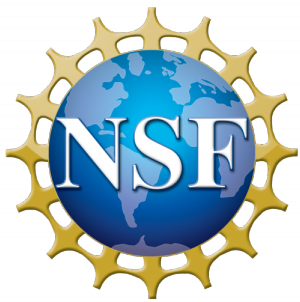September 7th, 2017 - August 31st, 2021 | PROJECT
Twin Cities PBS BRAINedu: A Window into the Brain/Una ventana al cerebro, is a national English/Spanish informal education project providing culturally competent programming and media resources about the brain’s structure and function to Hispanic middle school students and their families. The project responds to the need to eliminate proven barriers to Hispanic students’ STEM/neuroscience education, increase Hispanic participation in neuroscience and mental health careers and increase Hispanic utilization of mental health resources.
The program’s goals are to engage Hispanic learners and families by
- empowering informalSTEM educators to provide culturally competent activities about the brain’s structure and function;
- demonstrating neuroscience and mental health career options; and
- reducing mental health stigma, thus increasing help-seeking behavior.
The hypothesis underpinning BRAINedu’s four-year project plan is that participating Hispanic youth and families will be able to explain how the brain works and describe specific brain disorders; demonstrate a higher level of interest of neuroscience and mental health careers and be more willing to openly discuss and seek support for brain disorders and mental health conditions.
To achieve program goals, Twin Cities PBS (TPT) will leverage existing partnerships with Hispanic-serving youth educational organizations to provide culturally competent learning opportunities about brain health to Hispanic students and families. TPT will partner with neuroscience and mental health professionals, cultural competency experts and Hispanic-serving informal STEM educators to complete the following objectives:
- Develop bilingual educational resources for multigenerational audiences;
- Provide professional development around neuroscience education to informal educators, empowering them to implement programming with Hispanic youth and families, and
- Develop role model video profiles of Hispanic neuroscience professionals, and help partner organizations produce autobiographical student videos.
We will employ rigorous evaluation strategies to measure the project’s impact on Hispanic participants: a) understanding of neuroscience and brain health, particularly around disorders that disproportionately affect the Hispanic community; b) motivation to pursue neuroscience or mental health career paths; and c) mental health literacy and help-seeking behavior. The project will directly reach 72 Hispanic-serving informal STEM educators and public health professionals, and 200 children and 400 parents in underserved urban, suburban and rural communities nationwide.
Project Website(s)
(no project website provided)
Project Products
Team Members
Rita Karl, Principal Investigator, Twin Cities Public TelevisionFunders
Funding Source: NIH
Funding Program: SEPA
Award Number: R25OD023774-01
Funding Amount: $266,451
Tags
Access and Inclusion: English Language Learners | Ethnic | Racial | Hispanic | Latinx Communities
Audience: Families | Middle School Children (11-13) | Museum | ISE Professionals | Scientists
Discipline: Health and medicine
Resource Type: Project Descriptions | Projects
Environment Type: Broadcast Media | Media and Technology | Professional Development | Conferences | Networks | Professional Development and Workshops | Public Programs | Websites | Mobile Apps | Online Media

